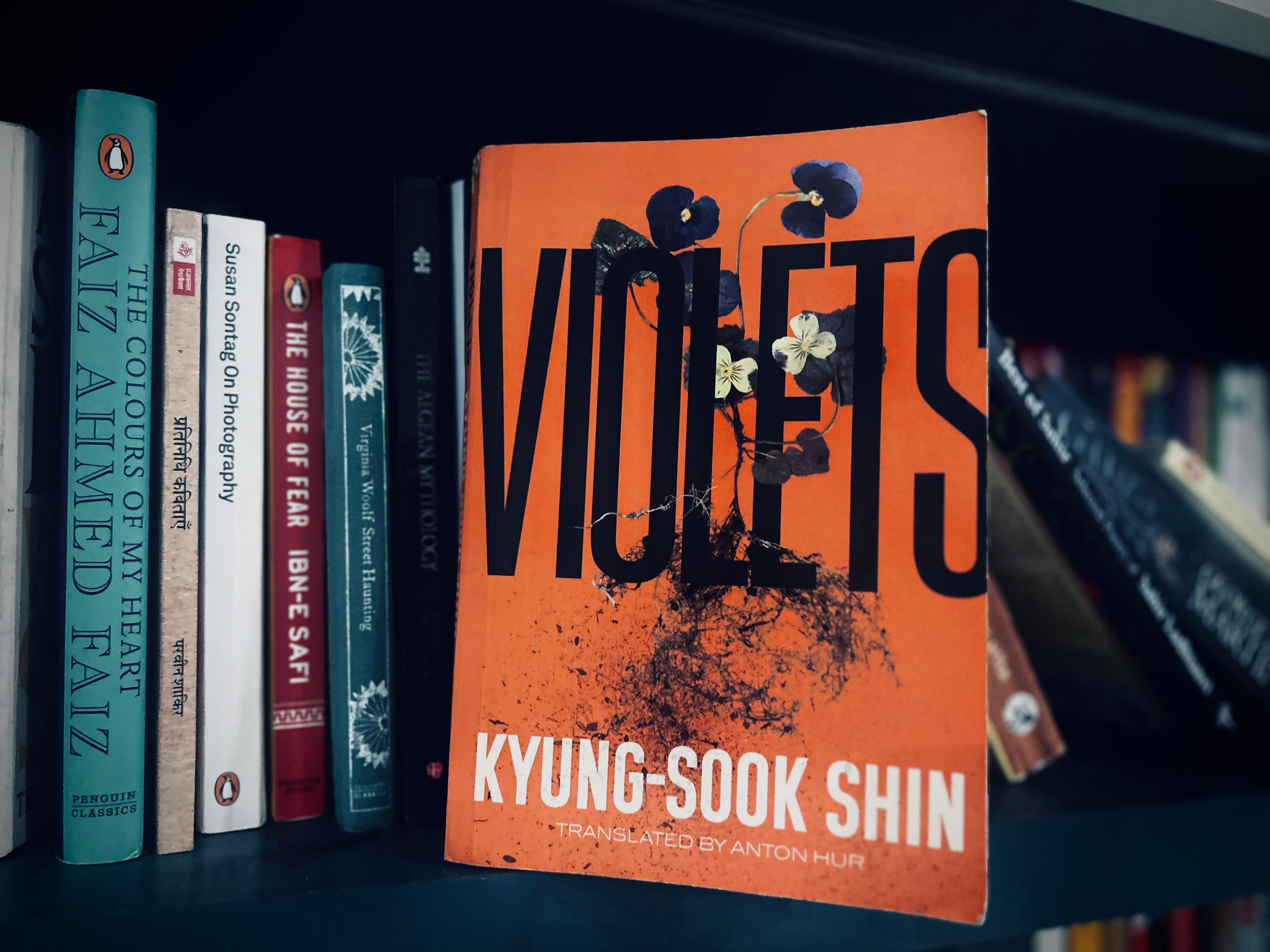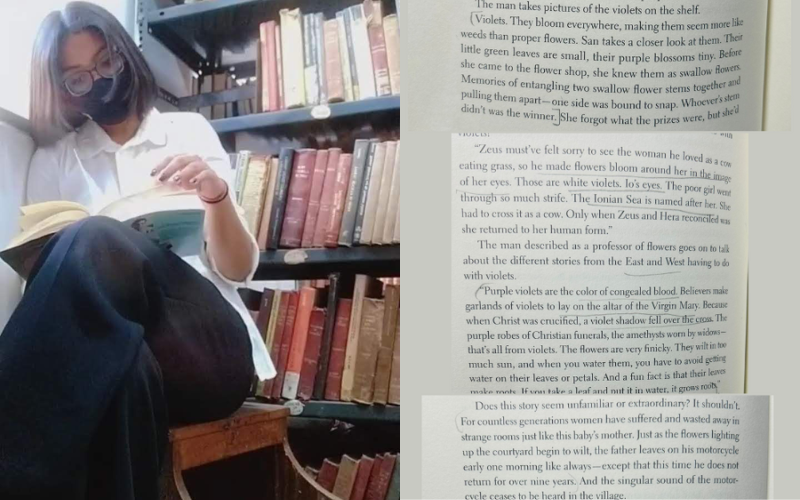- 한국어
- English
- 日本語
- 中文
- العربية
- Español
- Français
- Deutsch
- Pусский
- Tiếng Việt
- Indonesian
By Honorary Reporter Ananya Arya from India
Photos = Ananya Arya
Set in 1970s Korea in a rural setting, "Violets" by Shin Kyung-sook opens with the haunting line "A little girl."
This phrase resonates throughout the novel, reflecting how the protagonist Oh San retains her childhood innocence despite growing into her 20s. Her life is marked by neglect and rejection by her father, causing her to struggle with intimacy issues but still deserving love.
Two powerful symbols in "Violets" are violets and minari (water dropwort), which represent the resilience, beauty and survival of Korean women amid societal pressure. Through their rich metaphors, Shin critiques patriarchal norms in highlighting the deep cultural and emotional significance that they hold in the characters' lives.
"Violets" was discovered two months ago during research into feminist themes in Korean literature that focus on identity and women's resilience. Intrigued by Shin Kyung-sook's renowned portrayal of women's lives, especially after reading "Please Look After Mom," I found "Violets" to be a powerful narrative reflecting the complexities of womanhood in 1970s Korea. Her themes and style also resonate with Indian literature, heightening my interest in the book.

"Violets" is the sixth novel by Shin Kyung-sook.
Violets in the book symbolize fragility, humility and quiet beauty, reflecting the experiences of women in 1970s Korea like San. Like the eponymous delicate flower that is often overlooked and trampled on, these women face systemic silencing and marginalization. In Korea, violets traditionally embody quietness and modesty, two traits imposed in the past on women that limit self-expression and ambition.
San, with her repressed desires and intimacy struggles, exemplifies the shrinking violet: sensitive, unseen and constrained by societal norms. This symbolizes a broader societal issue: Korean culture's past relegation of women to quiet and subservient roles to fulfill familial duties while remaining unnoticed, much like violets that bloom in the shadows.

These are among my favorite quotes from the novel.
Minari symbolizes resilience and survival in this novel because of its ability to thrive in inhospitable conditions. In the novel, it reflects the enduring spirit of women like San, who navigates harsh circumstances while remaining deeply rooted in a culture that often stifles her growth.
Her care for plants is a therapeutic act that allows her control over aspects of her life that feel uncontrollable, embodying the strength and adaptability of women in challenging environments. The resilience of minari attests to how Korea has survived a turbulent history marked by colonization, war and rapid modernization.
The interplay of violets and minari in the novel offers a nuanced commentary on the treatment of women in Korea. Fragile and sensitive, violets symbolize the internal emotional struggles that women like San often conceal, while minari embodies the external resilience they need to survive.
As a young Indian, I found deeply resonating the book's portrayal of loneliness, repression and women's silent struggle. Shin's depiction of societal expectations and emotional isolation felt deeply familiar, reflecting the shared experiences of women across cultures.

Shin Kyung-sook is among Korea's most famous authors at home and abroad.
[email protected]
*This article is written by a Korea.net Honorary Reporter. Our group of Honorary Reporters are from all around the world, and they share with Korea.net their love and passion for all things Korean.
